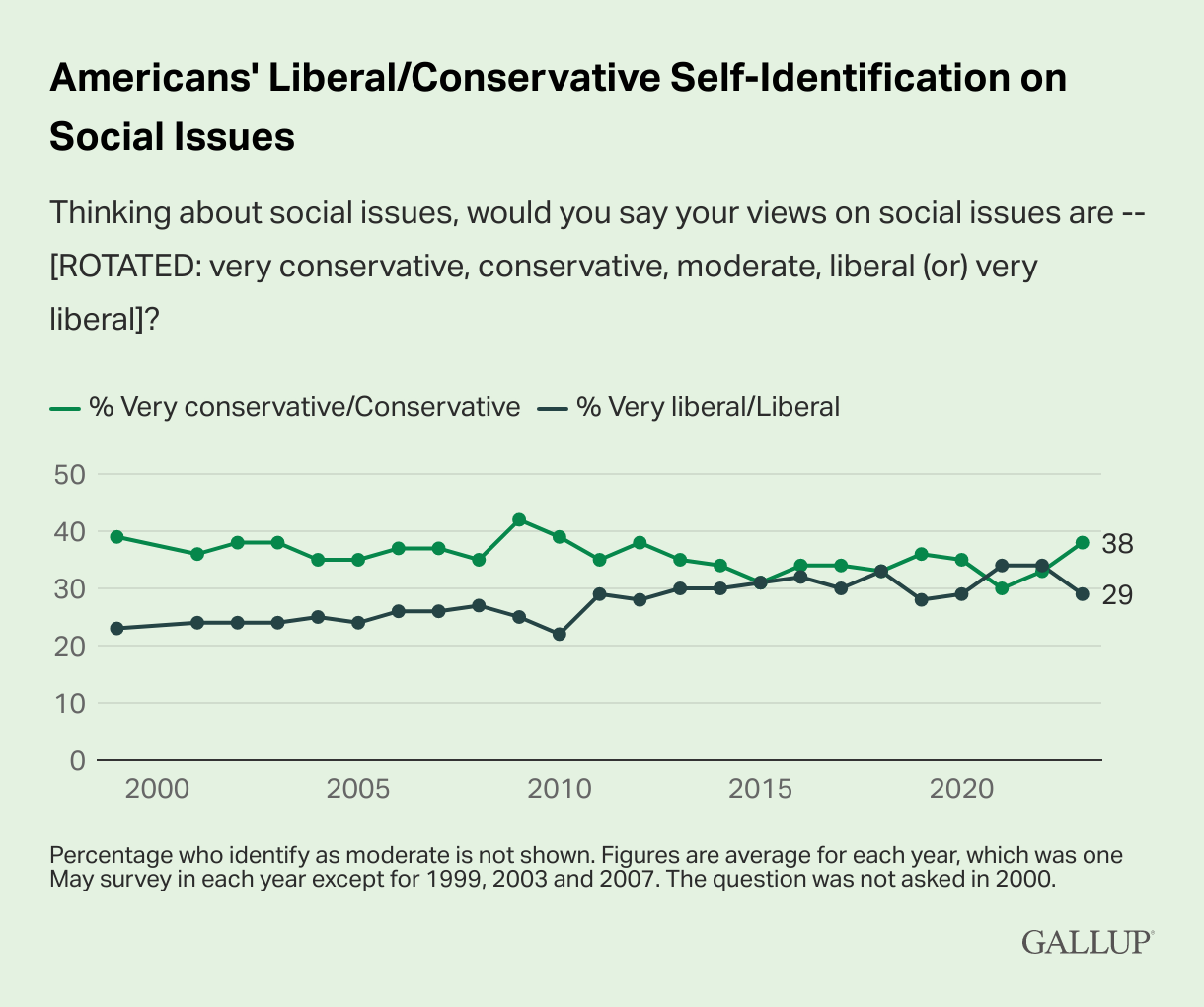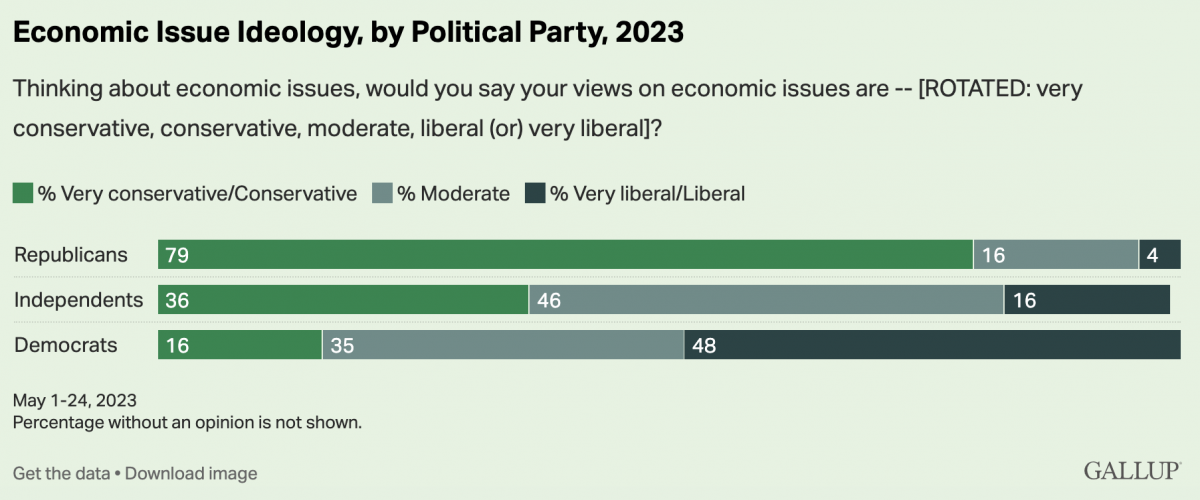Americans are moving increasingly to the right politically and economically, a trend that has gained significant momentum in 2023, according to new research by Gallup.
“The shift is mostly due to increasing social conservatism among Republicans, at a time when social issues such as transgender rights, abortion and other hot-button concerns are prominent in the national public debate,” Gallup said in a report about its annual Values and Beliefs survey conducted May 1-24.

The study found 38% of U.S. adults identify either as conservative or very conservative on social issues, up from 33% who defined themselves that way in 2022 and 30% in 2021.
Simultaneously, the percentage of respondents who described their social views as liberal or very liberal dropped from 34% to 29% during the past two years. Those identifying as moderate held steady at 31%.
“The last time this many Americans said they were socially conservative was 2012, during a period when consistently more U.S. adults identified as conservative rather than liberal on social issues,” Gallup’s report explains. “The survey comes at a time when many states are considering policies regarding transgender matters, abortion, crime, drug use and the teaching of gender and sexuality in schools.”
Driving the rightward shift are Republicans, whose identification as conservative on social issues skyrocketed from 60% in 2021 to 74% this year, the survey found. “Independents show a modest uptick of five percentage points, from 24% to 29%, while there has been no change among Democrats (10% in both 2021 and 2023).”

However, the increase in conservatism was documented across all demographic subgroups, including age groups. Americans 30 to 49 years old became more conservative by 13 percentage since 2021, reaching 35%. They were followed by those 50 to 64 years old, whose conservatism jumped 11 percentage points to 46% this year.
More 18- to 20-year-olds reported conservative outlooks, as well, rising from 24% in 2021 to 30% in 2023. Those 65 and older dropped just 1 percentage point to 42% in a two-year period.
Financial matters are a key driver of the increased conservatism, the report says. “When Americans are asked to describe their views on economic issues, 44% identify as very conservative or conservative, 33% moderate and 21% very liberal or liberal. The percentage saying they are conservative averaged 40% between 2020 and 2022. The current figure is the highest since 46% in 2012. Americans have consistently been more likely to say they are conservative on economic issues rather than liberal, by no fewer than 16 percentage points (in 2021).”
National events corresponding with the upward trend in conservativism include the debate between President Joe Biden and Congress on cuts in federal spending and raising the federal debt ceiling, the report explains. An agreement was eventually reached in June to prevent a government shutdown.
“Americans have been more likely to identify as economically conservative rather than liberal because Republicans overwhelmingly say they are conservative, but Democrats are not overwhelmingly liberal.”
“Americans have been more likely to identify as economically conservative rather than liberal because Republicans overwhelmingly say they are conservative, but Democrats are not overwhelmingly liberal. In 2023, 79% of Republicans identify as conservative on economic issues, while 48% of Democrats say they are liberal. Additionally, more independents identify as economic conservatives (36%) than liberals (16%).”
Roughly half of independents described themselves as moderate on economic issues, the survey found. “Partisans’ ideology on economic issues has been steady in recent years. The modest shifts in economic ideology among national adults are instead driven by slight changes in political party identification among U.S. adults (from an average 29% Republican, 32% Democratic in the 2020 and 2021 surveys to 30% Republican and 29% Democratic in the 2023 survey).”

But whatever the causes of the nation’s rising conservatism, Gallup predicts the trend likely signals growing support for conservative legislation, particularly in Republican-dominated states.
“Indeed, in the past year, many Republican states have passed stricter constraints on abortions, limited choices for transgender youth in sports participation and health care, and placed prohibitions on what topics can be discussed in classroom settings.”
Related articles:
Five charts that explain the desperate turn to MAGA among conservative white Christians
Social liberalism grows while economic conservatism still dominates


